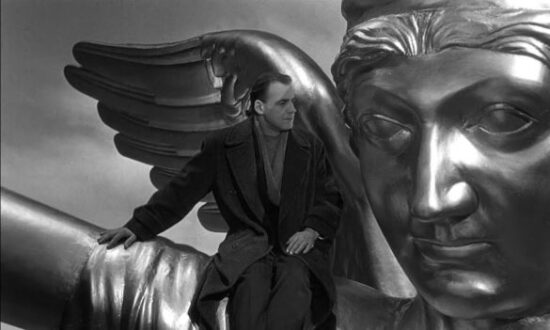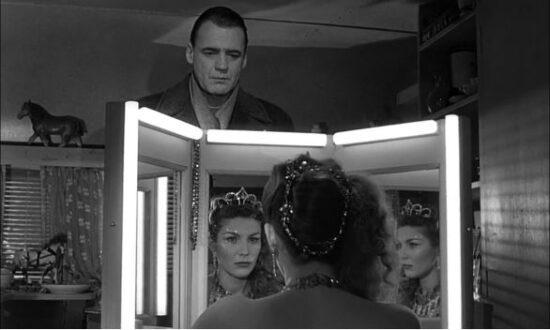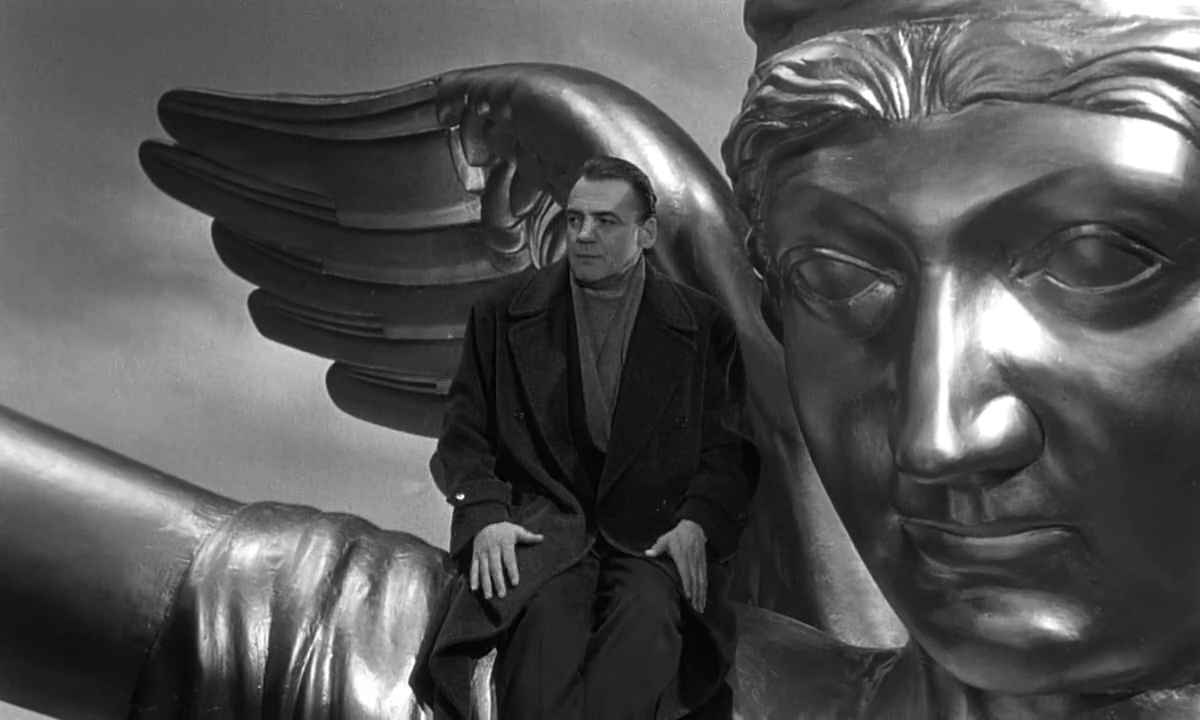
Wim Wenders’ Wings of Desire (1987) is an ambitious, poetic meditation on the way we each inhabit our own inner world, skimming the surface of another’s truth and experience, but rarely penetrating it. We each occupy an individual landscape of memories, secrets, and fears. We seek repose and solace in the lives of others as a means of transmuting our hidden lives into communal experience and shared wonder. We long to access, and eventually merge with and find closure within, the hidden inner self of others. Our desire to fulfill this wish can captivate, imprison, or set us free.
In Wings of Desire the longing to merge, and thus dissolve the boundaries of self, is a motivation that sets our protagonists free. Our archangel Damiel (Bruno Ganz) longs to discard the fetters of eternity in order to experience the psychological bounty and fulfillment of romantic love. The object of his desire, Marion (Solveig Dommartin), is a trapeze artist in a struggling theatre, lost in both her own reveries and the delicate sorrow of loneliness. Damiel has been witness to the collective and personal history of the world and the human experience, but he has been removed from the full tapestry of humanity by his own immortality. While this has endowed him, and his companion Cassiel (Otto Sander), with infinite wisdom and knowledge, it has deprived him of authentic immersion in the emotional experience of life.

His romantic and spiritual fascination with Marion catalyzes him to renounce his immortality for an opportunity to emotionally penetrate the surface of the human condition, rather than witnessing it as a distant observer. He abandons his access to the infinite in order to stake a claim in a singular earthly experience: the gestation of desire followed by the emotional closure of romantic, spiritual union.
Damiel and Marion immerse themselves fully in their shared romantic union and their two individual selves coalesce into a poignant, powerful expression of human desire. They lose themselves as they find themselves- reclaiming, or perhaps discovering, a vibrant, holistic fulfillment that only the dissolution of the individual self can offer. A new vista of psychological possibility is unearthed in their encounter. This allows them to experience the fulfillment of their desire and find closure in their yearning for wholeness.
Ultimately, the closure we seek within others is really a longing for closure within ourselves. Damiel and Marion reflect their private inner worlds and secret longings back to each other and in the process they achieve a new, more vitalizing form of immortality: the immortal cycle of human love.

